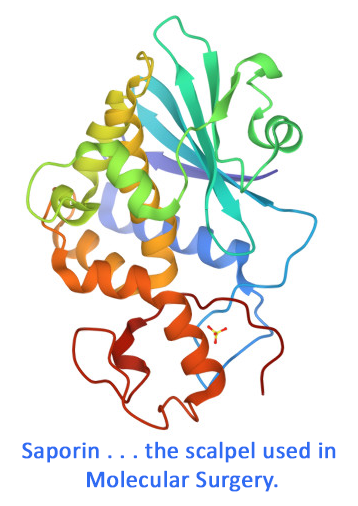PD-L1, Programmed death-ligand 1, also known as B7-H1 and CD274, is a cell surface glycoprotein and a member of the B7 family of co-stimulatory molecules. CD274 is expressed constitutively on macrophages and dendritic cells, and is induced on activated T-cells, B-cells, endothelial cells and epithelial cells in response to interferons. PD-L1 has dual function: inhibition of activated effector T cells and co-stimulation of naive T cells. PD-L1 has also been shown to be up-regulated in cancer cells in order to invade the host immune system. Anti-PD-L1-SAP could be used as an effective tool to study cancer and the immune system.
Anti-PD-L1-SAP is a bonded conjugate between a mouse monoclonal antibody to human PD-L1 (CD274, B7-H1) and the secondary conjugate Streptavidin-ZAP (IT-27) containing the ribosome-inactivating protein, saporin. It specifically eliminates cells expressing human PD-L1 (CD274, B7-H1).
Anti-PD-L1-SAP is available individually (Cat. #IT-45) or as a kit (Cat. #KIT-45) which includes Anti-PD-L1-SAP and BIgG-SAP Mouse (Cat. #IT-74).
keywords: Programmed death ligand, B7-H1, PD-L1, CD274, immune, T cells, cancer, PD-1, pregnancy, allografts, hepatitis, B cells, myeloid cells, interferons, nk cells, macrophages, hepatocytes, monocytes, tumor, BETA-014, biotinylated, strepatavidin, saporin


Reviews
There are no reviews yet.